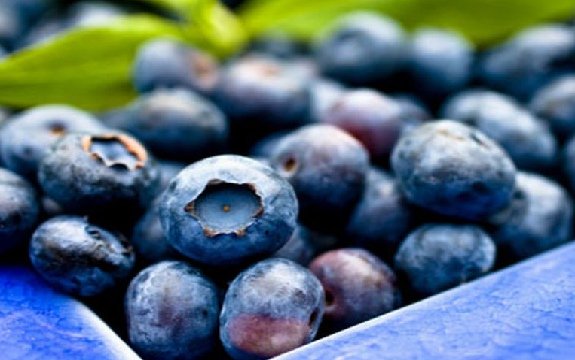Findings: Your Favorite ‘Foods’ are Being Replaced with Dangerous Artificial ‘Alternatives’

 Loaded with antioxidants and one of the most consumed berries in the U.S., blueberries have a special place in our hearts and our diets. But blueberry-flavored processed foods aren’t always delivering the same benefits as the little basket you find in the produce section or the farmer’s market. In reality, many of these products, with their blue-flecks, don’t contain berries at all.
Loaded with antioxidants and one of the most consumed berries in the U.S., blueberries have a special place in our hearts and our diets. But blueberry-flavored processed foods aren’t always delivering the same benefits as the little basket you find in the produce section or the farmer’s market. In reality, many of these products, with their blue-flecks, don’t contain berries at all.
In 2011, the nonprofit Consumer Wellness Center issued the findings of their investigation into the myriad of blueberry foods on grocery store shelves. What they found was that many food makers were substituting sugar, HFCS, hydrogenated oil, artificial flavors, and artificial colors, for blueberries. In bagels, cereals, breads—what was advertised as “blueberry” was really just some poor substitute.
Some of the products contained blueberries, but even those that did were combining the real fruit with these “bits” of fake berries. The take-away of the investigation was to always check the ingredients list and look specifically for red No. 40 and blue No. 2 to spot blueberry-imposters.
This reminds me of Minute Maid’s pomegranate-blueberry juice. The label on Minute Maid’s Pomegranate Blueberry Flavored Blend of five juices is misleading. Pomegranates and blueberries are the only fruits mentioned in the title and the fruits’ photos are prominent on the label. But the juice is 99.4 percent apple and grape-derived, containing only 0.3 percent pomegranate and 0.2 percent blueberry juice.
Something is amiss.
What You may Not Know about Blueberries
There are numerous reasons for seeking out the real thing when it comes to blueberries (or any other food for that matter. They have one of the highest concentration of antioxidants of any fruit, according to World’s Healthiest Foods. These protective compounds are credited with many of the benefits of the small berries.
One of those benefits: that blueberries can improve memory. A study on older adults found that 12 weeks of blueberry consumption was enough to change the results on cognitive testing. The researchers determined high consumption of the berries could be associated with memory improvement as well as staving off cognitive problems that frequently go along with aging. But that’s only one of many benefits of blueberries.
Though blueberries should appear dusty, many people are washing them as soon as they bring them home from the store. Instead, wait until you’re ready to eat and only wash those you plan on consuming immediately. Washing blueberries considerably shortens the amount of time they’ll stay fresh.
If you’re looking to increase your blueberry consumption, steer clear of processed products with blue flecks of unknown origin, and choose fresh, organic fruit. A study analyzing conventionally-grown and organic blueberries found the organic berries had higher antioxidant concentrations than the conventional counterparts.

Wild, fresh blueberries are more nutritious than the domesticated blueberries.